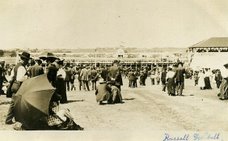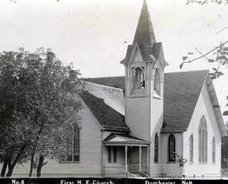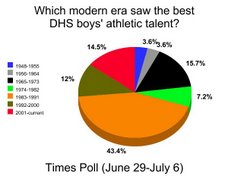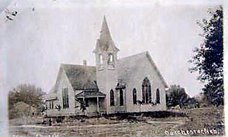 We've read that the politicians in Washington, D.C. plan to rewrite the farm bill this spring.
We've read that the politicians in Washington, D.C. plan to rewrite the farm bill this spring. While politicians don't read this blog, their constituents do.
And many of those constituents agree that changes need to be made to the farm bill to save the small (and even mid-sized) farmer, which has become an endangered species thanks to the federal farm program that lacks meaningful payment caps.
From 1995 to 2016, Nebraska farmers and landowners received $20.3 billion in subsidies from the federal taxpayer. Let that sink in. Now ask yourself:
- Is rural Nebraska better off after those billions of dollars were given mostly to a handful of mega operations?
- Do we have more or fewer farms?
- Do we have more or fewer kids in our rural and small-town schools?
- Are small-town main streets thriving more or less compared to 30 or 40 years ago?
The only thing previous farm bills have really done is help the biggest farms to get even bigger in a shorter amount of time. Uncle Sam is giving a huge helping hand to the very operators that should be self-sufficient, making it impossible for the small farmer to get ahead.
In 2016, Saline County was the 19th most heavily subsidized of Nebraska's 93 counties. Most surrounding counties were ranked even higher. According to an online database of federal records, here are some of the largest farm payment recipients in our area over the past 21 years (from 1995-2016), followed by the amount each farm received during that span of two decades:
- (Largest recipient in state) Kaliff Farms * York, NE -- $9,860,910
- H-r-w Farming * Friend, NE -- $6,572,990
- J D Hirschfeld and Sons * Benedict, NE -- $4,165,609
- Orville Hoffschneider and Sons * Waco, NE -- $3,401,172
- J D M Farms * Shickley, NE -- $3,247,662
- Alfs Farms Partnership * Shickley, NE -- $3,093,519
- B and B Ag * Fairmont, NE -- $2,741,238
- R and M Farms * Shickley, NE -- $2,276,234
- Pospisil Farms * Friend, NE -- $2,271,089
- Rex P Biegert Shickley, NE -- $2,084,728
- Bohaty Farms Joint Venture * Seward, NE --$2,048,396
- Rowen J Kempf and Sons * Shickley, NE -- $1,939,504
- J R Kaliff and Sons * York, NE -- $1,876,598
- S S R Land Co * Shickley, NE -- $1,682,446
- Spohn Farms Inc * Friend, NE -- $1,626,379
- Todd N Ricenbaw * Cordova, NE -- $1,506,802
- Glen T Petersen Farms Inc * Fairmont, NE -- $1,498,978
- Weber and Sons II * Dorchester, NE -- $1,471,359
- Agri Song Inc * Exeter, NE -- $1,452,204
- Drake Farms Inc * Friend, NE -- $1,444,689
- Medow Farms Inc * Seward, NE -- $1,406,596
- Kenneth L Cross * Friend, NE -- $1,375,689
Dorchester and other Nebraska communities depend on the ag economy to a large extent. When farmers do well, our businesses tend to do well and our schools tend to do well. But that doesn't mean generously subsidizing the very largest farms -- without stricter payment caps -- makes economic or ethical sense. Currently, 85% of federal subsidies go to the largest 20% of producers.
Not everyone is fortunate enough to inherit hundreds or thousands of acres of farmland, but most Americans are unlucky enough to pay tens or hundreds of thousands in federal income tax over a working lifetime. Should middle class and working class Americans be forced to subsidize some of the wealthiest landowners in the world?
If these big subsidies to the biggest operators bother you, let your congressman and senators in Washington know how you feel.
Contact them at:
Rep. Adrian Smith: https://adriansmith.house.gov/
Sen. Deb Fischer: https://www.fischer.senate.gov/public/
Sen. Ben Sasse: https://www.sasse.senate.gov/public/
Then feel free to pass along this editorial to friends, family and neighbors.


















































Interesting site. Many million dollar recipents in the local area
ReplyDeleteWas this written by the Center for Rural Despair? Wah! Get over yourself and mind yer own business.
ReplyDeleteI'm a local small farmer! I have looked up my payments on this site and they weren't accurate in my case. In fact they aren't even close. I'm not saying that we don't get payments, just that mine were really, overblown. I've had it explained to me how these figures come about but am not sure enuff about it, to call it a fact!
ReplyDeleteI just looked up our payment and if we really received this amount, as the farm wife, I could easily not work full-time outside of the home. Not the correct amount.....not even close. However, if they want to pay us this amount, I won't argue:)
DeleteOh yes they are the actual amounts. Click on your name to see when and what type of payment it was. Hey farm wife, might want to ask hubby where the checks went. A lot of new pickups and suburbans out there. Cabo, Cancun, Florida, Bahamas
DeleteI asked and he said he used the money to pay for my new set:)
DeleteWould that be a deductible asset? Or just tax exempt?
DeleteWise investment of taxpayer money. Should help with dropping assets.
DeleteI’m sure that’s a yearly expense for hubby to not let the bottom fallout of that set of assets. Poor guy.
DeleteWe laugh and shake our heads but these crop subsidies are just icing on the cake. The bloggers could/should have mentioned the other handouts that wealthy farmers and agricultural land owners get.
DeleteThere's the 75% agriculture land valuation. For decades, farm land has been given special treatment by Nebraska law. Currently, ag land is assessed at 75% of actual value rather than the 100% valuation faced by home owners and businesses. As a result, Nebraska’s public schools, counties, cities and other property tax-collecting entities in 2016 received $400 million less than they otherwise would have. From 2006 through 2016, Nebraska ag land owners paid an estimated $2.77 billion less in property taxes than they otherwise would have, allowing big land owners to drive up prices at auctions and other land sales.
There are sales tax exemptions. No sector receives more in sales tax exemptions than agriculture. According to the Nebraska Tax Commissioner’s report, sales and use tax exemptions for agriculture cost the state an estimated $1,503,203,000 in lost revenue. Not included in this figure is the $15.6 million exemption for ag repair parts or the $34.5 million in lost revenue due to preferential registration and licensing fees for farm trucks.
Finally, there are the property tax credits issued by the state government. In 2016, farm/ranch land owners received nearly half of Nebraska’s $204 million in property tax credits, which are funded by state income and sales taxes. This occurred despite that residential and business owners paid more than two-thirds of Nebraska’s total property tax bill.
WOW! My mainstreet biz might even be able to compete with walmart if I got those kind of payments from the government
ReplyDeleteThis is why land prices have been up to 10-11 thousand per acre. The part that is frustrating is that they can complain to their senators that their land taxes are to high to make a living. Everyone should have it so tough.
ReplyDeleteDear Grand Dad,
ReplyDeleteWhy didn't you go into farming and leave me something in you're will besides your rusted truck and cigarettes?
Bubba the Working Stiff
Payment limits are needed, I agree.
ReplyDeleteThey should be affixed to any type of government handout, whether for farmers or welfare queens or families taking food stamps and housing vouchers.
$20 trillion in federal debt is enough justification.
By the way, too bad they don't publish the names and amounts of all welfare recipients in the country for every type of government program other than social security and medicare, which are at least paid for in part by recipients.
a big farmer buddy complained to me last week that his property taxes had tripled over the past ten years, when I asked him how much his land had gone up in that time he said from 15 million dollars to over 40 million dollars. time to cash out I said.
DeleteIt sure gets quiet when the truth is exposed.
Deletefarming is not easy how would you like plant for 4 weeks harvest for 4 weeks and have 44 weeks off that is why there new trucks say 4 by 4 om the box plus it is not very easy trying to spend all your dad and grandpas money i forgot and the welfair checks
ReplyDeleteIG-NOR-RAM-ASS
DeleteWay to go Dorchester bloggers! We thought Obama was the great divider. He doesn't hold a candle to you guys pitting the town folk against the farmers! Interestingly, I see that most of the folks on the Dorchester Area Community Association are farm families who are trying to build and improve the community of Dorchester. Are they the bad guys too? Shame on you for stirring the pot in such a negative fashion!
ReplyDeleteUnless the blogsters are writing the comments I don't think their editorial is divisive whatsoever. Indeed, it's spot on.
ReplyDelete